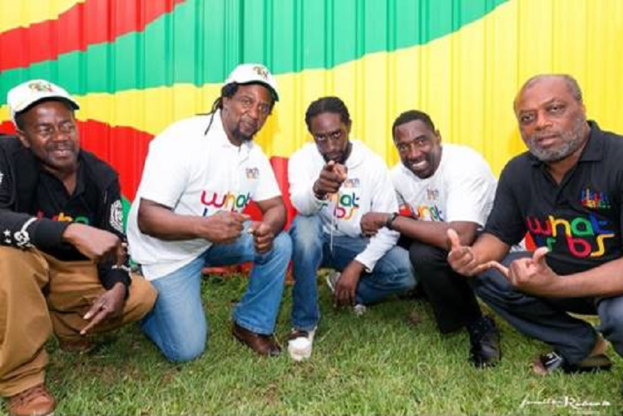Black Slate are a reggae group, who formed in 1972 and were originally based in Hackney East London. Their debut single, Sticks Man, was inspired by racial tension in the UK and released at a time when conflict between Jamaican immigrants, Black British people and the police force were rising at an alarming rate
In the same year as their release, the 1976 Notting Hill Carnival had seen a high level of violence after the communities involved were angered by high police attendance, as well as seeing massive social divides caused by the impact of stop and search laws. The band members watched as unemployment swept across the nation, an unjust association spread by the media seeing Black immigrants stereotyped and labelled as “muggers” and “breakers-of-the-law”, and documented the events in their music.

Following high demand, Black Slate are back, writing a book series about their history and music, performing 3 headline shows in Australia, and are even re-releasing their hit album, Peaceful Demonstration.
What inspired the title of your album ‘Peaceful Demonstration’?
Peaceful Demonstration is really about now and the time we are living in. It’s a song about current affairs that are still happening in the world, the reality that we still fall in love. And that we have a history and culture that we need to enhance and preserve.
Do you feel the racial tension and discrimination you witnessed growing up in the 70’s and 80’s remains at all today?
Yes, but in a different form. It’s in a way that we can’t complain, and half of the time we are now blaming ourselves without even realising.
Does Gavin’s experience as a young black male in the music industry differ from yours when you were starting out?
It’s totally different now. When I myself, Anthony Brightly, was growing, we had more opportunities than my son Gaven. Our foundation was deeper rooted and less controlled. In our school we had instruments to play, we could form a band and had hope. They took all that away by the time Gaven got to secondary school.
There where small organisation like Triangle workshop, that provided an opportunity to learn an instrument, but they could not be sustained under the local pressure of no funding.
How do you think reggae music appeals to audiences of all ethnicities?
Before reggae Music was a way of life, not a fashion, which it became – and as you know fashion comes and goes. But in the world, Reggae music Is a lifestyle and a culture.
What does Black History Month mean to you as a band?
Black History Month is a platform that gives us a reason and an opportunity to talk out more, than in the normal day to day life.
Do you think it is important for future generations?
Yes, that’s why we are talking today about what we have done to shape the UK’s History not just Black History.
What are your opinions on the supposed relaxation of ‘stop and search’ laws?
No different from before, this is not new. We wrote a song in 1980 about this law, they just adjust to suit the times that we are living in, it’s a lot easier for the powers that be, because they have the right to our social media information. It’s really the same nothing has changed.
Do you think this will have an effect on black communities in the UK?
Yes, and will always.
Any other thoughts you have on the Black History Month organisation and its works?
Keep doing what you’re doing, your organisation as a good foundation, and we need more like you, so we can cover past, present and look and plan for the future.
Follow Black Slate:
Spotify: https://open.spotify.com/artist/4huwZ2KmII41Er1kEdaVOR
Facebook: https://www.facebook.com/BlackSlategroup/
Twitter: https://twitter.com/BlackSlateRegga
Instagram: https://www.instagram.com/blackslatereggae/
Website: http://www.blackslatereggae.com/
